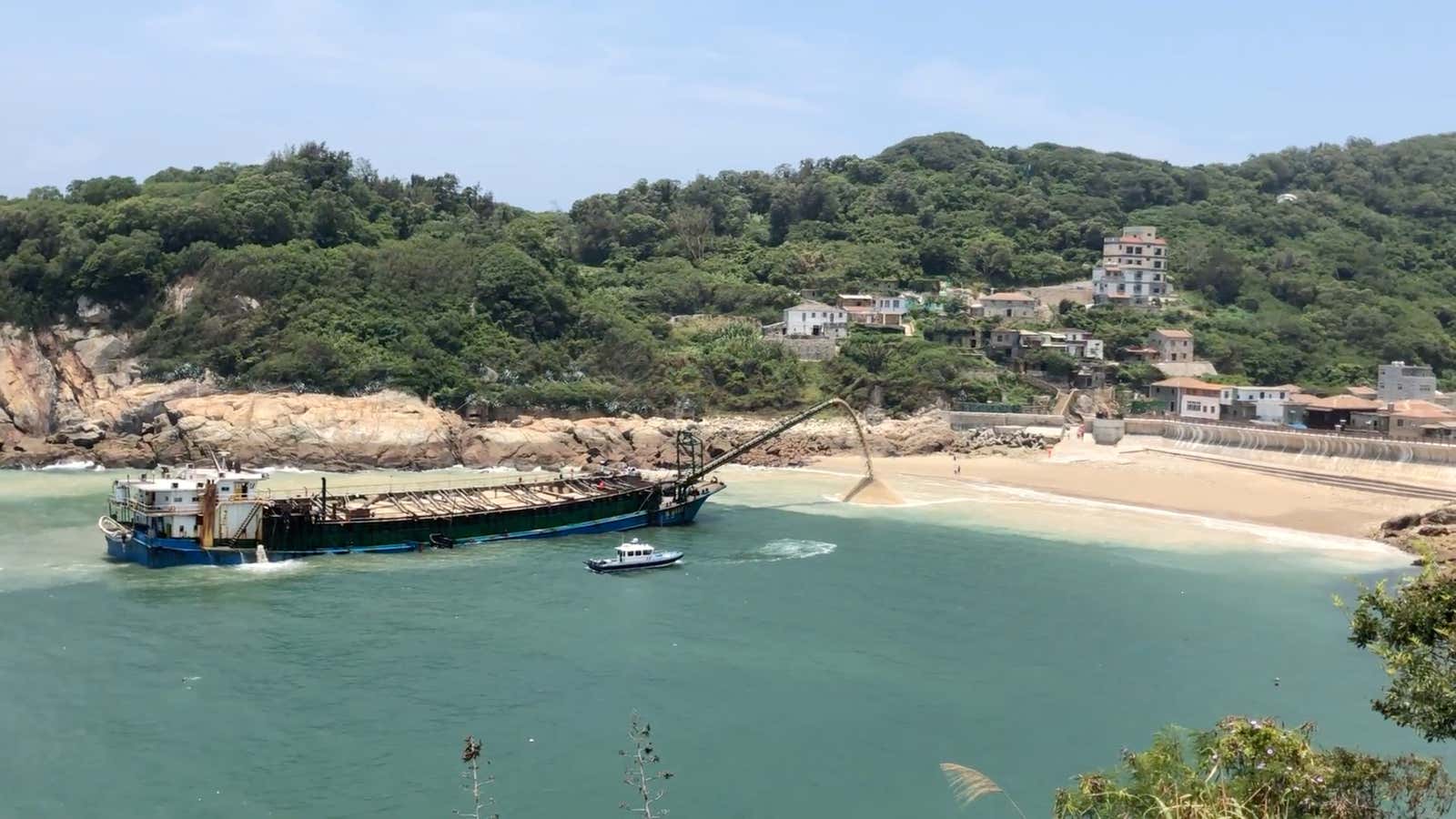After US House Speaker Nancy Pelosi traveled to Taiwan to express her support for the territory’s autonomy, China retaliated by cutting off sand exports to the island.
Sand—a key ingredient in the glass, concrete, mortars, and plasters used in many construction projects—has emerged as a small but contentious flashpoint in cross-strait relations. Taiwan used to import much of its sand from China, which has an abundance of lakes and rivers prized for their high quality sand. But in recent years, Taiwan has been working to wean itself off Chinese sand so that the construction of new homes, office towers, and factories isn’t at the mercy of Beijing’s export policy. Last year, China sent dredging ships to steal sand from the Taiwanese side of the Taiwan Strait as an intimidation tactic.
The sand trade itself is little more than a blip in the Chinese and Taiwanese economies: Last year, China exported just $1.2 million worth of sand to Taiwan (contributing roughly 0.00000006% of Chinese GDP). But sand’s knock-on effects on construction could make the ban more disruptive. When Taiwan faced a sand and gravel shortage in 2019, government ministers scrambled to bolster domestic supply to avoid delays in the estimated 30,000 construction projects that break ground on the island each year.
At the very least, banning sand exports gives Beijing a symbolic way to lash out at the Taiwanese construction industry, at a moment when it is busy building $120 billion worth of new semiconductor factories that Taipei hopes will secure the island’s economic future and cement its status as an irreplaceable trade partner to the US and its western allies.
China has banned sand exports to Taiwan before
In the early 2000s, Chinese sand exports to Taiwan were steadily growing. Although Taiwan is an island surrounded by sandy coasts and seabeds, it relied on China to provide sand sourced from freshwater rivers and lakes. That kind of sand is ideal for construction because it is coarse and free from contaminants; smooth desert sand doesn’t bind together as well, and ocean sand is mixed with salt which must be washed out or else it will corrode the metal in buildings.
But in March 2007, China banned sand exports to Taiwan, citing environmental concerns. Chinese sand dredging has destroyed river and lake ecosystems and disrupted the flow of water used in agriculture. Since 2007, Beijing has gradually cut down its sand exports and limited dredging to whatever is necessary to sustain domestic construction.
The 2007 ban lasted about a year and caused sand shipments to Taiwan to drop more than 80%. The sand trade recovered slightly after the ban ended in 2008. But it has been on the decline ever since—in part because China reduced the quota of sand that could be exported to Taiwan every year after the ban lifted, and in part because Taiwan started looking for alternate suppliers, including the Philippines (pdf), and ramping up sand dredging in its own rivers and lakes.
As a result, Taiwan’s global sand imports have dropped precipitously, from a high of 26 million tons in 2006 to roughly 2 million tons annually in recent years. And the percentage of imported sand that comes from China has fallen from a high of 80% to roughly 3% last year.
Taiwan says the impact of China’s sand export ban will be limited
Taiwan has spent more than a decade reducing its reliance on Chinese sand, and government officials say China’s latest export ban will be far less disruptive than the 2007 ban. The Ministry of Economic Affairs stressed that China now supplies less than 1% of Taiwan’s sand, and it predicted the economic impact of losing that supply would be limited. These days, Taiwan relies on a more diverse—and diplomatically friendly—set of trading partners to keep its construction industry moving.
